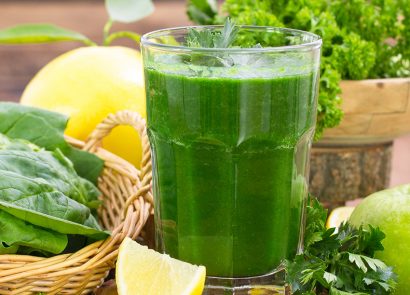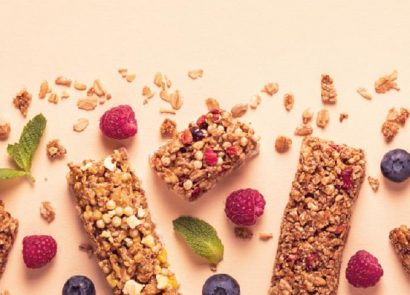From hormones to heart health, we’ve rounded up the best expert advice you and your family need to stay in top health this month
If you weren’t already aware, gut health is having a bit of a moment. In fact, searches for digestive health are predicted to reach an all-time high in 2020 (Food Business News). So, with probiotics and prebiotics now getting a front row seat in the health industry, you might be wondering why everyone is interested in what’s going on down there. “I would never rule the gut out as something to try and enhance, as it has such a big impact on so many things,” says gut health expert and registered nutritional therapist, Nicola Moore (nicola-moore.com). Whether it’s about the soggy salad you’re having for lunch or the dodgy takeaway you had last night, your gut will want to have a conversation with the rest of your body about it. But how do those conversations work? And, how can we make them positive? In this guide, our experts share why good health begins in the gut.
Hitting up your hormones
Our hormones get the blame for a lot of things. Snapping at your partner: hormones. Eating a whole bar of Galaxy chocolate for lunch: it must be hormones. However, don’t be too quick to blame your bad mood on the time of the month. Too much of the female hormone oestrogen can often cause premenstrual syndrome (PMS), heavy periods, endometriosis and other hormonal health conditions, and this excess in oestrogen can be caused by an unhappy gut, as Nicola explains. “When we manufacture an oestrogen hormone, it has a certain amount of time to circulate and be processed around the body before it is removed via the obvious channels.” (Yes, you poop out your excess oestrogen). “However, if you have certain imbalances of different species of bacteria in your gut, you can have elevations in an enzyme called beta-glucuronidase. This can be a problem, because it can unpackage oestrogen and then that is reabsorbed back into your system. So overall, levels of oestrogen in your body could potentially rise if you’ve got this recycling of oestrogen happening.”
Q&A: What are microbiomes?
“The microbiome is a combination of all the microbes that live inside the body including bacteria, fungi, viruses and protozoa,” says nutritionist Amanda Griggs (urbanretreat.co.uk). “There are trillions of them. They live on and in our bodies, but the majority of them take up space in our colon. They have important jobs to do, such as digestion of food to produce important vitamins, regulate our immunity, go into battle on our behalf against disease-causing bacteria and even influence our behaviour.”
Helping your heart
Ultimately, if there’s something a little off-key with your body, your gut probably has the potential to influence it. But, before you start eating a lot of kimchi in an attempt to reduce your risk of a heart attack or stroke (those studies have only been done on mice so far) check your cholesterol levels instead. “Where medical professionals are starting to understand more about specific bacteria, evidence from The American Society Of Biochemistry And Molecular Biology shows that certain types of bacteria impact the management of high cholesterol,” says Nicola. “One of the first things I’d do with a client with high cholesterol is support them with the appropriate probiotics and make dietary changes to improve the bacteria in their gut.”
Q&A: Probiotics, do they live up to the hype?
“Probiotics are live micro-organisms which, when consumed in the right way, can produce beneficial effects to health,” says founder of The Gut Feeling, Lucie Hayter, (thegutfeeling.co.uk). “They act by reinforcing the gut barrier, producing health promoting signals, regulating gut transit and can help to prevent overgrowth of unhelpful bacteria in the gut. Probiotics aren’t just a supplement and can be enjoyed in live probiotic foods like kefir, sauerkraut and kombucha.”
Building a strong brain
Another key area that medical professionals are fascinated by is the gut-brain connection. Studies show that the absence of good gut bacteria affects serotonin levels in the brain, influencing depression, stress and other cognitive disorders. A 2017 research review in the Annals of General Psychiatry looked at how probiotics affect symptoms of depression. The research also showed that taking a daily probiotic supplement seemed to help with symptoms of both depression and anxiety. “We have a nerve called the vagus nerve that runs directly from our gut to our brain,” explains Nicola. “What happens is that the bacteria in our gut produces compounds that are similar to neurotransmitters.” (Some major ones you’ve probably heard of are serotonin and dopamine). “These chemical messages travel up that vagus nerve and say stuff like ‘I want to eat more carbohydrates’ or ‘I’m hungry, I want to eat more food now’. The gut has a strong influence over the brain.”
Check in with your gut
Signs and symptoms of an unhealthy gut include:
- gas
- bloating
- constipation
- diarrhoea
- food intolerances
- sugar cravings
- bad breath
- mood disorders such as anxiety, depression
- skin problems
- fatigue
- weight gain
Safeguarding your immune system
A dip in your immune system’s defences could also mean that your gut is suffering from inflammation. “All chronic health conditions, and you could argue all physical and emotional conditions, have an inflammatory driver,” says Nicola. “The gut has a big influence over all body inflammation because the bacteria in it play a crucial role in educating our white blood cells, which are part of the body’s immune system. There are some types of bacteria that are referred to as ground negative bacteria that contain, in their membrane, markers called lipopolysaccharides (LPS) and these are like little red flags for the gut. If you have digestive problems, they can infiltrate the body and create inflammation, so working on your gut health can help bring this down.”
Try…Time restricted eating
“Fasting overnight allows the small intestine to repair itself,” explains Nicola. “Giving yourself a 12-night fasting window for five nights out of seven, and for those 12 hours, not eating or drinking, can really improve your gut health”
Supporting your mouth
Yes, really, gut health starts in the mouth. Studies show that an imbalance of bacteria in the body’s defences can stop your white blood cells fighting harmful bacteria, which in turn, can cause gum inflammation and tooth decay. Microbes, enzymes, and nutrients all pass through your mouth on their way to your gut, which means that digestive problems can affect your oral health and vice versa. Some signs that your mouth might be affected are:
- a red or swollen tongue (can be a sign of immune imbalance in the digestive system)
- flat red patches on the gums and cheeks
- mouth ulcers
- oral candida or yeast infection
- white pus-filled lesions.
Check with your GP if any of these conditions persist.
Starter kit for your gut
Here’s how to build your best body yet with advice from the founders of The Gut Stuff, Lisa and Alana Macfarlane (thegutstuff.com).
1. Count the colours on your plate
When it comes to gut health, having a diet that’s rich in variety is key. Focus on plantbased options, such fruit, vegetables, nuts and pulses, as different fruits and veggies have various benefits and feed different bacteria – so eat the rainbow!
2. Make your own pasta sauce
It might sound obvious, but processed foods tend to include additives and emulsifiers which can wreak havoc on our guts. Try simple swaps, such as making your own pasta sauces and soups, to help limit your consumption of processed foods.
3. Hit 30g of fibre
Fibre is the unsung hero of nutrition but nine out of 10 of us aren’t getting enough of it. We’re supposed to have around 30g per day, which is a high number to target, but luckily nature has packaged both soluble and insoluble fibres into plenty of plant-based foods – think fruit, vegetables, nuts and pulses.
4. Start a food diary
This is to monitor what you’re eating, how you are feeling (mentally and physically) and your toilet habits. You may also see some patterns between stress and your digestion.
5. Go out on a walk each day
Exercise increases the populations of beneficial bacteria in your gastrointestinal tract by up to 40 percent. Do something that has mindful benefits like a 20-minute walk, and join our #walktowellbeing campaign.




















